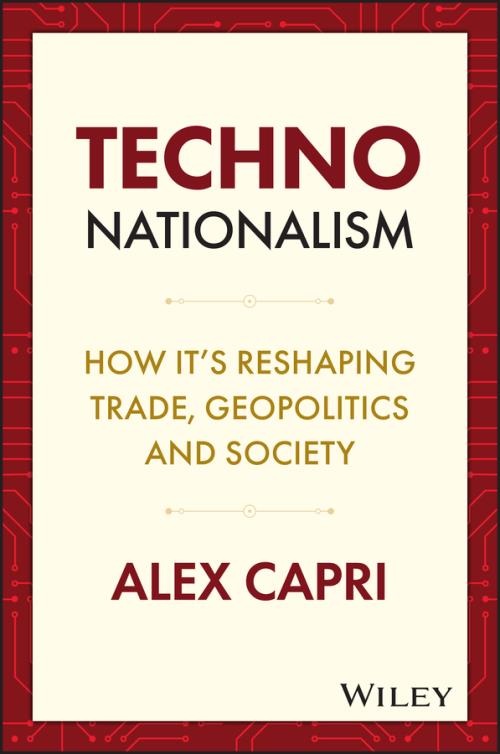Techno Nationalism Techno-nationalism Could Determine The 21st Century
Related
Encrypting your link and protect the link from viruses, malware, thief, etc! Made your link safe to visit.
Have you ever heard of techno-nationalism? It's a term that has been popping up more frequently lately and for good reason. This phenomenon is shaping the way we live our lives in ways we may not even realize. From trade and geopolitics to society and the internet, techno-nationalism is having a significant impact on our world. So, what exactly is it, and why should you care?
Techno-Nationalism Explained
In simple terms, techno-nationalism is the idea that countries should prioritize their own technological advancements and industries over foreign competition. It's a response to the globalization of technology and the rise of multinational corporations.
To understand what this means in practice, let's look at an example. In recent years, the United States has been involved in a trade war with China over issues such as intellectual property rights and technology transfer. The US government has accused China of stealing American technology and using it to develop its own industries, which has led to tariffs and other trade restrictions.
While this is just one example, it illustrates the broader trend of countries trying to protect their own interests in the face of increased competition from abroad. This protectionism can take many forms, from trade policies to immigration restrictions to investment regulations.
The Impact of Techno-Nationalism
Techno-nationalism has far-reaching implications for our world, affecting everything from international relations to the products we buy. Here are just a few examples:
Trade and Geopolitics
As we've seen, techno-nationalism can lead to trade tensions between countries. It can also exacerbate geopolitical conflicts, as countries try to assert their dominance in specific technological areas. For example, China's efforts to become a leader in 5G technology have been met with suspicion by the United States and other countries, who fear that China's dominance in this area could be used for espionage or other nefarious purposes.
Society and Culture
Techno-nationalism can also have an impact on our daily lives. For example, it can lead to the creation of "walled gardens" on the internet, where users are restricted to certain websites or services based on their geographical location. This can limit access to information and stifle the free flow of ideas.
Technology and Innovation
Finally, techno-nationalism can affect the pace and direction of technological innovation. By prioritizing domestic industries over foreign competition, countries may be missing out on valuable ideas and innovations from other parts of the world. This could ultimately slow down progress and limit the potential benefits of emerging technologies.
How to Navigate Techno-Nationalism
With techno-nationalism becoming increasingly prevalent, it's important to understand how to navigate this new landscape. Here are a few ideas:
Stay Informed
One of the best ways to stay on top of techno-nationalism is to stay informed. Follow the news and pay attention to how various countries are approaching technology and innovation.
Be Flexible
In a world where technology is constantly changing, it's important to be flexible and adaptable. Embrace new ideas and approaches, even if they come from unexpected sources.
Collaborate
Finally, don't be afraid to collaborate with others. Whether it's with international partners or local businesses, working together can lead to innovative solutions and new opportunities.
Conclusion
Techno-nationalism is a complex and multifaceted phenomenon that is shaping the way we live our lives. From trade and geopolitics to society and culture, its impacts are broad and far-reaching. By staying informed, being flexible, and collaborating with others, we can navigate this new landscape and find new opportunities for growth and innovation.

Image 1: Techno-Nationalism. How it's reshaping trade, geopolitics and society. Edition No. 1

Image 2: Techno-nationalism: AKP’s secret weapon

Image 3: Techno-nationalism could determine the 21st Century - BBC News
Image 4: 'Techno-nationalism' unlikely to succeed: experts - Chinadaily.com.cn

Image 5: Techno-nationalism is shaping the future of your internet — Quartz
If you are looking for 'Techno-nationalism' unlikely to succeed: experts - Chinadaily.com.cn you've came to the right place. We have 7 Pictures about 'Techno-nationalism' unlikely to succeed: experts - Chinadaily.com.cn like TECHNO-Nationalism. How it's reshaping trade, geopolitics and society. Edition No. 1, 'Techno-nationalism' unlikely to succeed: experts - Chinadaily.com.cn and also 'Techno-nationalism' unlikely to succeed: experts - Chinadaily.com.cn. Here it is:
'Techno-nationalism' Unlikely To Succeed: Experts - Chinadaily.com.cn
Techno-Nationalism Era
techno nationalism
Techno-nationalism Is Shaping The Future Of Your Internet — Quartz
nationalism
Techno-nationalism: AKP’s Secret Weapon
Techno-nationalism / MIT Technology Review - Marcin Wolski - Debut Art
techno wolski marcin nationalism mit technology review none filtered artist
Techno-nationalism Could Determine The 21st Century - BBC News
nationalism
TECHNO-Nationalism. How It's Reshaping Trade, Geopolitics And Society. Edition No. 1
techno nationalism reshaping geopolitics
Techno wolski marcin nationalism mit technology review none filtered artist. Techno-nationalism could determine the 21st century. 'techno-nationalism' unlikely to succeed: experts




0 Response to "Techno Nationalism Techno-nationalism Could Determine The 21st Century"
Post a Comment
Dont Spam in Here Ok...!!!